Who am I?
In the humble tapestry of existence, in the vast theatre of life, there exists a man, a man known as Richard Alan Wermske, a man who is a multitude to some, a cipher to others. But let us dispense with the third person, let us dispense with the formalities, for Richard is I, and I'm he.
Born under the star-spangled banner, born under the Lone Star of Texas, born under the sprawling skies of Houston, I emerged into this world as an unexpected gift, a prom-night surprise to youthful parents whose lives would unfurl into two separate households, each nestled comfortably in the bosom of the middle class. My family tree, a gnarled and twisted thing, bears the scars of dysfunction, scars that trace back through the annals of time, through three generations.
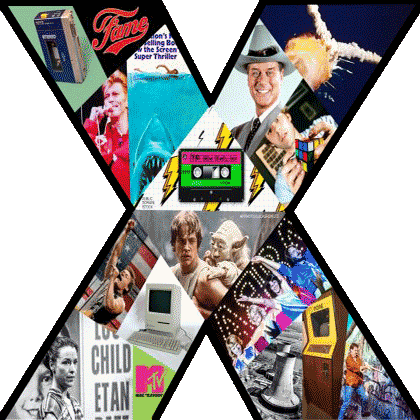
My Generation
And the friends I made along the way, oh, how I cherish them. They were my companions in a time of lost innocence, in a time of palpable fear. They were the pillars of stability, the wellsprings of nurture, the beacons of wholesomeness in my life. They stood by me, even when I could not always stand by them.
Identity
On the net or in-game, you may have encountered me under any of a dozen other monikers (depending on where you may find me at play, lurker, or working). In-person, I default to formal use of names. I prefer my family name prefixed by a situationally appropriate honorific, role, or title. In uncertain situations, I'll almost always respond to Mr. Wermske.
If we are clearly in a familiar or casual context, I prefer the shortened form of my given name, Rich. I have neither affinity nor distain for my middle name; it exists; it is undistinguishing; I have no use for it.
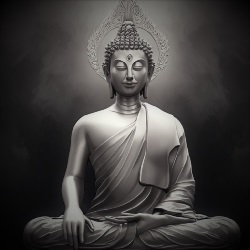 Buddhism
Buddhism
I am an ordained, non-monastic Buddhist. My ordination ceremony was conducted entirely in Vietnamese by the Abbot of the Tinh Luat temple in Houston. Among the seventeen people taking the vows, I was the only non-Vietnamese speaker.
It was interesting to follow in Vietnamese; but, I had studied and practiced and was prepared. I understood the ceremony in Pali and English. I recognized the Triple-Gem, taking refuge, and the Precepts. I didn't know the words in Vietnamese but I understood the meaning.
At that moment, I was perhaps the most "still of mind" as I've ever been; it was a moment of absolute clarity and liberation. I simply don't have the language to describe it, other than peaceful (a brief transmission of satori).
My ordination or Buddha name, Ngông Minh, was given to me by the Abbot in the ceremony. After the ceremony, I asked the monks and nun to help me understand (and pronounce) the name. The Vietnamese (tiếng Việt) language has intonation and pitch features that are difficult for the English ear to hear. The monks spoke very little English but the nun spoke some english well. With joyful exchanges and plenty mistakes on my part, they were able to help me understand the name in a Buddhist context.
"Ngông" signifies innocence, a pure or unblemished mind, one that remains unattached to worldly desires and distractions. This aspect of the name highlights the individual's ability to stay focused on their spiritual path, maintaining a clear mind for understanding the Buddha's teachings.
The "ng" sound is similar to the "ng" in the English word "singer." The "ô" has a long "o" sound, similar to the "o" in "bore." To pronounce it correctly, you should say "ngoong."
"Minh" represents wisdom and intelligence, which is particularly relevant given the person's cleverness. In the context of Buddhism, it refers to the individual's capacity to gain insight into the nature of reality and the path towards enlightenment.
The "i" in Minh is pronounced like the "i" in "bit" or "sit," and "nh" is similar to the "ny" in "canyon." Pronounce it as "min."
I was told that the Master was recognizing my dedication to meditation and my cultivating a deeper, inner understanding of the Buddha's teachings and applying them in my daily life, ultimately guiding me on my journey towards enlightenment. Thus, my Buddhist name is suggestive of my open-minded learning while emphasizing the importance of balancing mental purity and spiritual wisdom.
To be Ngông Minh is humbling and aspirational. The name is neither descriptive nor who I am, it is where I go and how to get there.
I rigorously compartmentalize my professional or public presence from other aspects of my life. I do this for two reasons: 1) to maintain the highest possible integrity for my professional clients, and 2) to protect my free exercise of religion, speech, assembly and the right to petition.
Lest someone make an inappropriate intuitive leap, in all compartments of my life, I am an ordained Buddhist in active recovery. I abide my vows as I understand them; I continue to take my personal inventory and when I am wrong I promptly admit it. I don't always practice as well as I might be capable. I am human; I make mistakes.
Lloyd Wermske (my GrandFather)
To the best of my knowledge, my paternal lineage is just "all kinds of broken." I know almost nothing of my biological, paternal grandfather. My father and grandmother told me stories of aristocracy and the noble Von Wermske name. It was all rubbish. I was also told that my grandfather was Nazi Intelligence and was secreted to the United States at the end of WWII. That too was disgusting rubbish. The truth is far more mundane and, for the 1940's, potentially embarrassing.
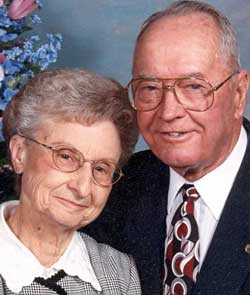
My present understanding is that my father was a WWII baby, the product of an affair between a Beautician and an Airman returning from war. Donald was born August 22, 1945, in San Marcos, Texas (as evidenced by records in Hays County). His childhood is a black hole partially obscured by anecdotes that are not easily reconciled with the historical record. Aside from a child, the only evidence of a relationship is the Henderson family bible (which I have).
Official records have yet to be discovered that Lloyd and Barbara were ever legally married or divorced. That's not to say that no evidence exists (and if any evidence becomes available, I'll update the record to reflect such). That said, there is very clear evidence that Lloyd married someone else (Patsy Jean) in 1950. For Barbara and Lloyd, married or not, divorced or not, the fracture is obvious -- it also supports the vitriol, estrangement, and lies surrounding my father and his biological father.
I've had no contact with the Patsy Jean Wermske branch of the family tree. From what little I've observed (and seasoned with a little imagination), I see them as good, wholesome folk -- the "Leave it to Beaver/Wonder Years" or Norman Rockwell family to my "All in the Family/Simpsons" experience.
I did reach out and connected with Lloyd through his church but was unable to arrange to meet him before he passed in 2014, at the age of 92. I regret not having taken the opportunity to bridge that gap. I occasionally find myself in North Texas, perhaps I shall grace his grave with flowers some day.
Geneology
So natural curiosity (and the very limited number of living persons with the Wermske name) has led me explore my heritage. I've traced the Wermske name back to Christian [Wermeskerch] Wermske; born in Germany, he lived from November 9, 1859 to July 30, 1952. At present, only speculation addresses the name change.
With his wife Mary Uvoor Juver (1858-1918), Christian produced seven children. The children took different names, some opting for Wermeskerch and some Wermske. Of interest to me is their son, Matt Wermeskerch (1882-1964). With an, as yet, unidentified woman, Matt sired three children, who all took the Wermske name, Opal, Donna, and Lloyd. Lloyd Wermske and Barbara Henderson produced Donald Wermske. Barbara Henderson, later to marry Roy Livesay, was one of two children born to Dr. Russell L Henderson (1895-1962) and Dora E Henderson (1895-1965).
I am the product of Donald Wermske and Carolyn Peacock. Carolyn is the daughter of Maj. Lester Leroy Peacock and Barbara Belle Barth. Through Carolyn, I have my maternal lineage.
About the Kids
Even though our babies can't speak the human tongues, they are constantly trying to find ways to communicate with us. Whether through their ever growing vocabulary of meow-speak or their expressive body and contact language, they continue to amaze us with their ability to connect with us. More likely though, they are training our responses as much as we are shaping their behavior.
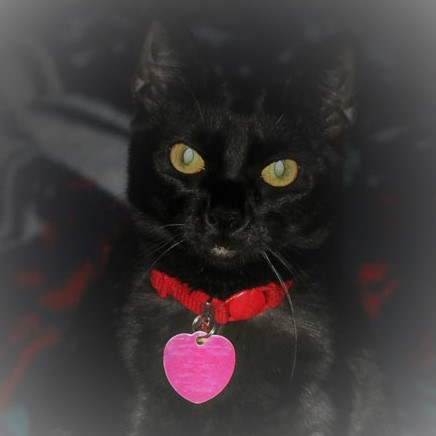
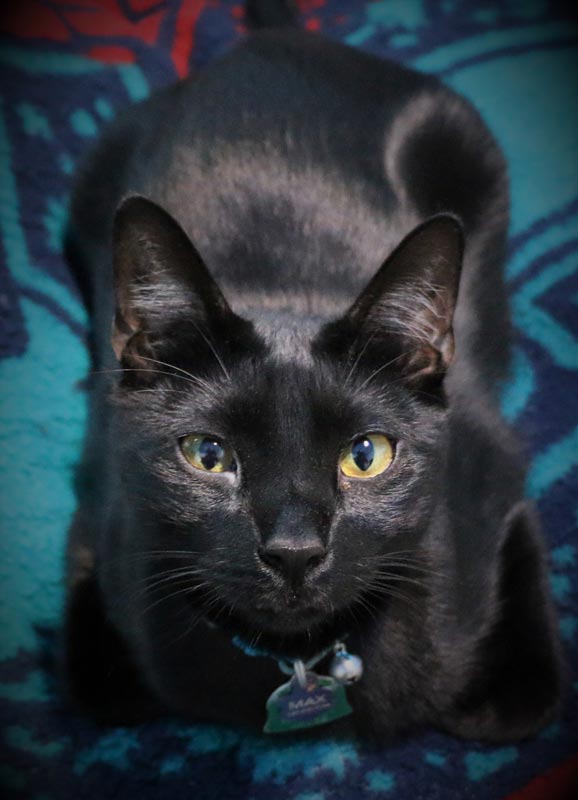
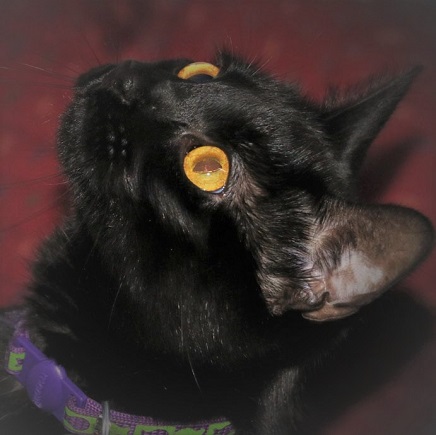
It is the unique little things that each of them do that lets us know, we are their family and they are our family. The two-way bond affects the rules of play, expectations, and things they will tollerate or demand. We have had the joy of nurturing them through sickness as baby kittens and watching them discover the well-protected world in which they live.
About Ideas
Pragmatism and Utilitarianism
I am a believer in the tangible, the observable, the practical. I see the world not as a canvas for abstract theories, but as a stage for actions and their consequences. The truth of an idea, to me, lies not in its metaphysical attributes, but in its practical effects. It's a philosophy that asks: Does it work? Does it bear fruit in the garden of life?  Does it make a difference in the world we live in?
Does it make a difference in the world we live in?
This pragmatism of mine, it shapes my view of the supernatural. I do not dismiss the unseen, the unexplained, but I ask for their effects to be felt, to be experienced. I seek the practical implications of the supernatural, the ways in which it influences our lives, our world. If a belief, a spiritual practice, brings comfort, inspires kindness, fosters community, then it has value. It has truth.
And yet, my philosophy is not solely grounded in the practical. It is also guided by the ethical compass of utilitarianism, a belief in the pursuit of the greatest happiness for the greatest number. I hold that the best actions are those that bring the most joy, the least suffering. It's a philosophy that asks: Does it bring joy? Does it lessen suffering in our shared human experience?
This utilitarianism of mine, it shapes my ethics, my approach to moral dilemmas. When faced with a difficult decision, I weigh the potential for happiness, for suffering. I consider not just the immediate effects, but the ripples that spread out, touching lives, shaping futures. I strive to choose the path that brings the most joy, the least harm, even when the choice is hard, even when there is no perfect answer.
In essence, I am a pragmatist and a utilitarian. I believe in the power of practical actions and their consequences, but always with an eye towards the greater good, the collective happiness. It's a dance between the real and the ideal, a balance between the world as it is and the world as it could be.
It's a philosophy that is grounded in the world, but always reaching towards the sky.
The Middle Way
The Middle Way refers to transcendental ways of approaching seemingly antithetical claims about reality. The Middle Way also presents a path of moderation away from the extremes of indulgence and self-mortification and toward the practice of wisdom, morality and mental cultivation. If we seek happiness purely through indulgence, we are not free.
we are not free.
If we fight against ourselves and the world, we are not free.
The middle way describes the middle ground between attachment and aversion, between being and non-being, between form and emptiness, between free will and determinism.
The more we delve into the middle way the more deeply we come to rest between the play of opposites.
It is the middle path that brings freedom. This is a universal truth discovered by all those who awaken. Neither hedonist nor ascetic are to be imitated, for the Noble Eightfold Path weaves its way through life avoiding both these unenlightened lifestyles. The perfection of the Path (that is, the Middle Way), is the ripening of the spiritual life; it becomes a fruit ready to drop into the infinity of enlightenment…forever.
Living the Middle Way can take many different forms but all are ultimately intent on its original and continuous objective: Nirvana. To cultivate a right lifestyle – hand in hand with a mindful meditative practice – is to walk the Middle Way, which gives vision and understanding. We need to see things as they are – rather than as we want them to be. This understanding is the knowledge that in the things of the world there is no salvation or enlightenment.
The Middle Way is the realization that beyond erroneous egos and puffed-up personalities; we are the Buddha. To truly walk the Middle Way is to traverse this world in the knowledge that we are already enlightened – we just have to enlighten ourselves to the fact! Openly reflecting on the Way is to share with all sentient beings this wondrous hidden truth, helping us to let go a little of our greed, hatred, and delusion, the three poisons that tie us to a life of suffering.






